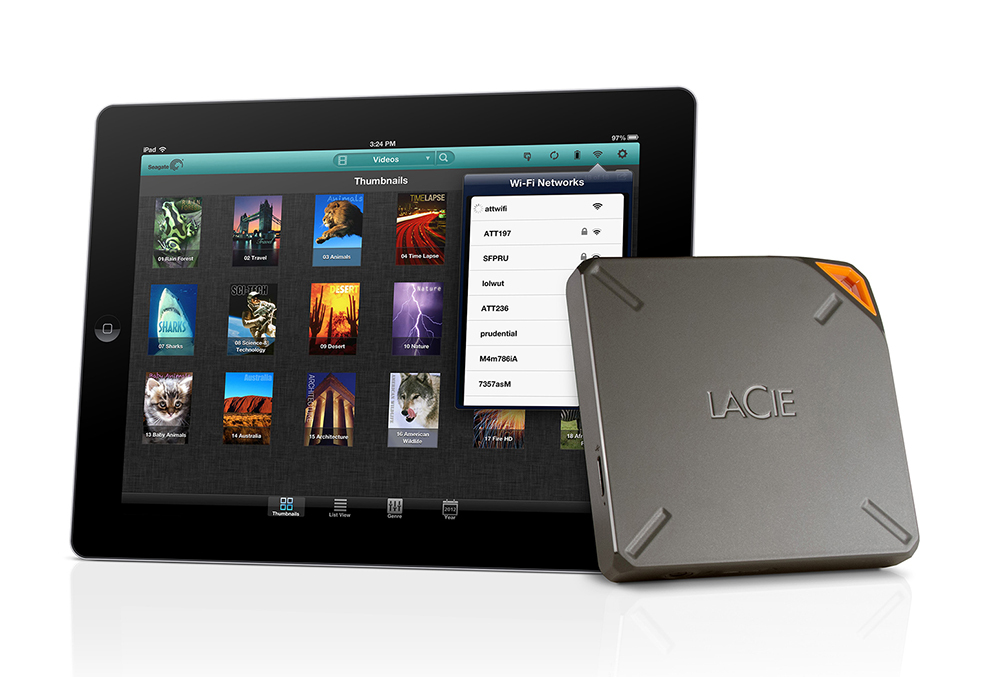
LaCie Fuel expands iPad capacity by 2TB
Whatever size tablet you opt for, there’s a good chance you’ll fill the available space in no time at all. Apps, photos, and HD movies all consume a sizable amount of space, forcing you to manage your storage wisely.
If you own an iPhone or iPad you can boost your device’s available capacity with an LaCie Fuel 2.5 inch wireless drive. The LaCie Fuel offers wireless streaming to up to five devices without an internet connection, and Airplay compatibility for mirroring content on a larger screen. It can also create its own Wi-Fi network and act as a hotspot when connected to the internet via Wi-Fi.

Google Drive price cut gives a little and takes a lot
This week, World Wide Web inventor Tim Berners-Lee calls for a "bill of rights" for the Internet. Much of the media coverage focuses on governments, but I see corporations as greater concerns. Who has more direct access to your stuff? Google is front and center, but by no means alone, profiting from your content.
Today's big Google Drive price cut -- $1.99 and $9.99 monthly down from $4.99 and $49.99 for 100GB and 1TB, respectively -- makes me wonder. The search and information giant offers more value for less money. The question: Who benefits more? Customers paying less, or Google getting their business? I have to wonder when, if not already, the company will use contextual data gathered from your Drive for targeted everything, from Now to ads and more.
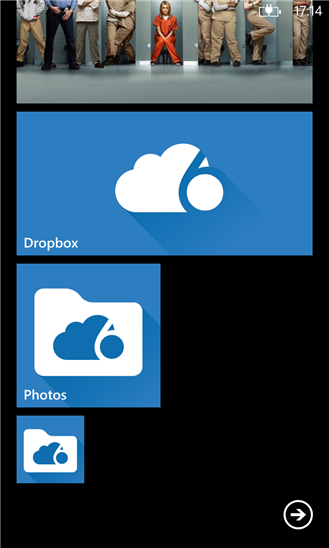
There's finally a great Dropbox client for Windows Phone
Windows Phone may be seeing new, popular titles launched in Store, like Facebook Messenger, Instagram and Vine, but the tiled smartphone operating system continues to lack some notable apps. The reason is major developers are still waiting for the platform to gain more traction before committing.
YouTube is absent, but there are a couple of good clients available that nearly make up for it. But, when it comes to Dropbox a decent selection is virtually non-existent. Part of the reason is the cloud storage service is focusing its resources in mobile on Android and iOS, like many other major companies, and (probably the majority of) Windows Phone users are in OneDrive's backyard already, whether they like it or not. But, if they choose to embrace Dropbox now they can turn to CloudSix for Dropbox.
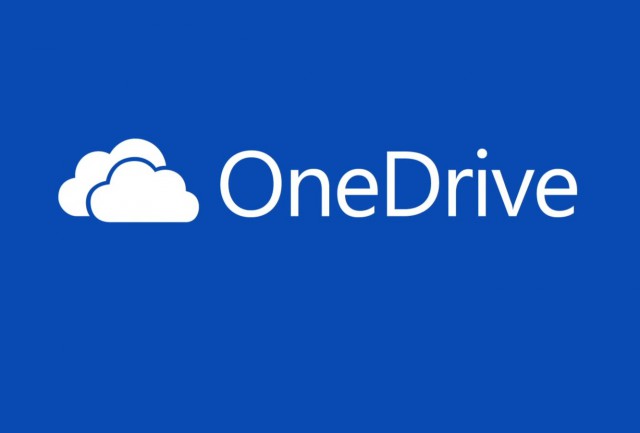
BlackBerry brings OneDrive to BB 10 smartphones
After being forced to drop the SkyDrive name following a legal dispute with UK broadband provider Sky, Microsoft relaunched its cloud storage service, last month, under a new, yet somewhat familiar moniker, OneDrive. Rebranded apps quickly hit Android, iOS, OS X and Windows Phone, adding new features in the process.
With the OneDrive roll-out almost complete, BlackBerry (yes, that is right) just introduced the cloud storage service on its own platform, BlackBerry 10. The move effectively gives Microsoft access to more potential customers, and allows OneDrive to better rival the availability of other market competitors, like Box.
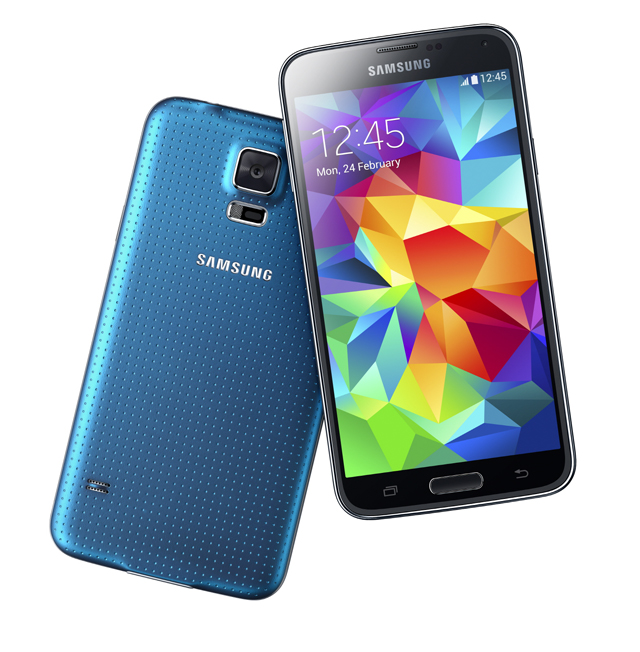
Plan to buy Samsung's Galaxy S5? Get a microSD card too (or the 32 GB model)
The amount of storage that is advertised in a product's specifications sheet never matches the user-available capacity when software is preinstalled on the device. That is to be expected, but there comes a point when customers may be getting too little space to store some content and install a few apps. With just a couple of games, that are growing in size nowadays, there might be nothing left available.
That is what upcoming Galaxy S5 buyers will have to deal with, as the preinstalled software on Samsung's new flagship takes up more than half of the advertised storage on the 16 GB model. Yes, that is roughly 8 GB occupied out-of-the-box.
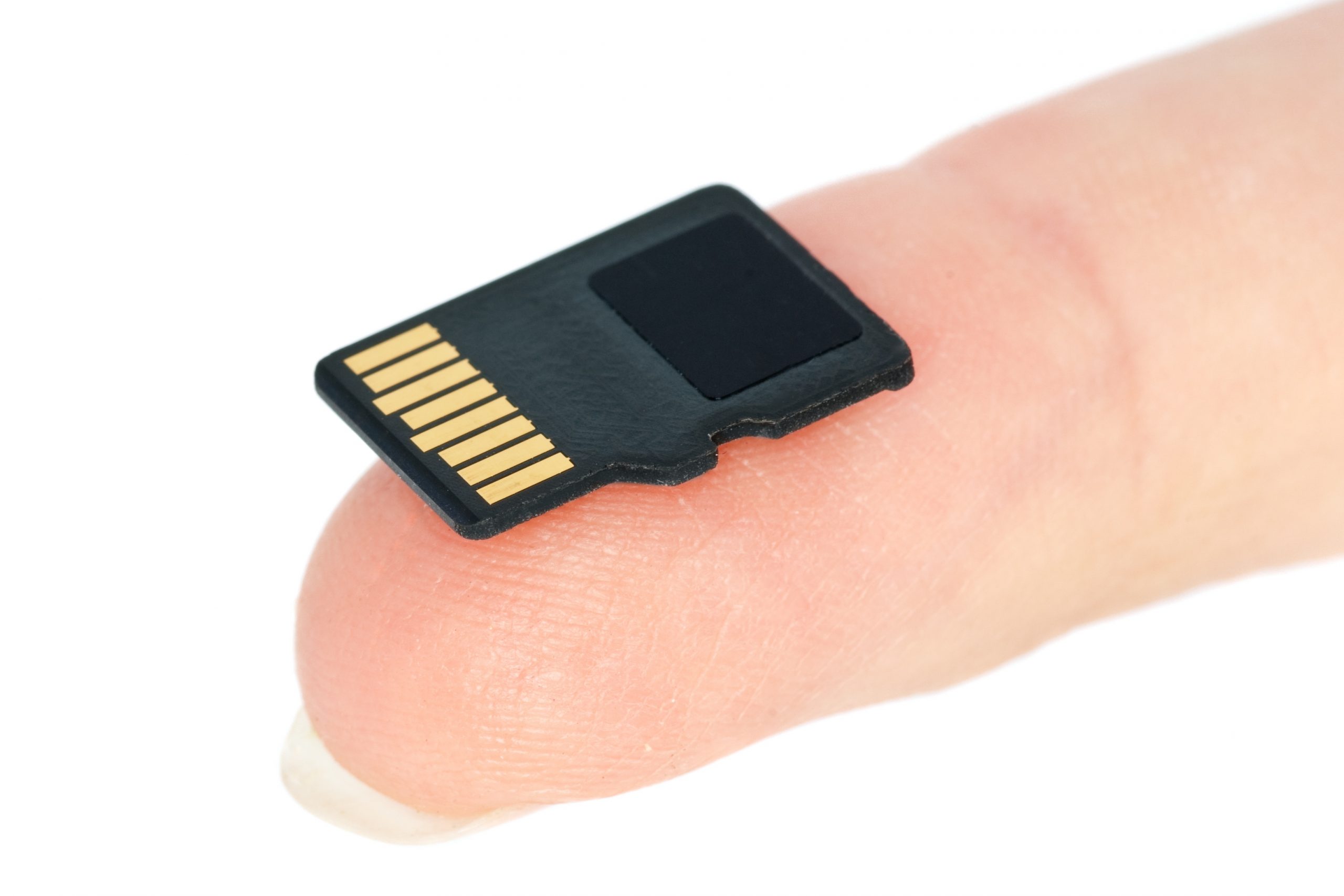
Sandisk announces world's first 128GB microSDXC card
As the cameras on smartphones get better, more and more people are shunning the dedicated variants. You see, it is not practical to carry a camcorder or point-and-shoot camera everywhere you go. After all, you never know when you may want to take a picture or shoot a video -- life doesn't follow a schedule. This is why a smartphone makes a great camera.
The problem is, as megapixels increase and 1080p video becomes standard, storage space fills up very quickly. Many phones still come with a paltry 16 or 32GB of storage, which is not much at all. While some phones offer microSD expansion, the cards have been limited to 64GB for quite some time. Today however, Sandisk announces it has gotten over the hump and delivers the world's first 128GB microSDXC card.
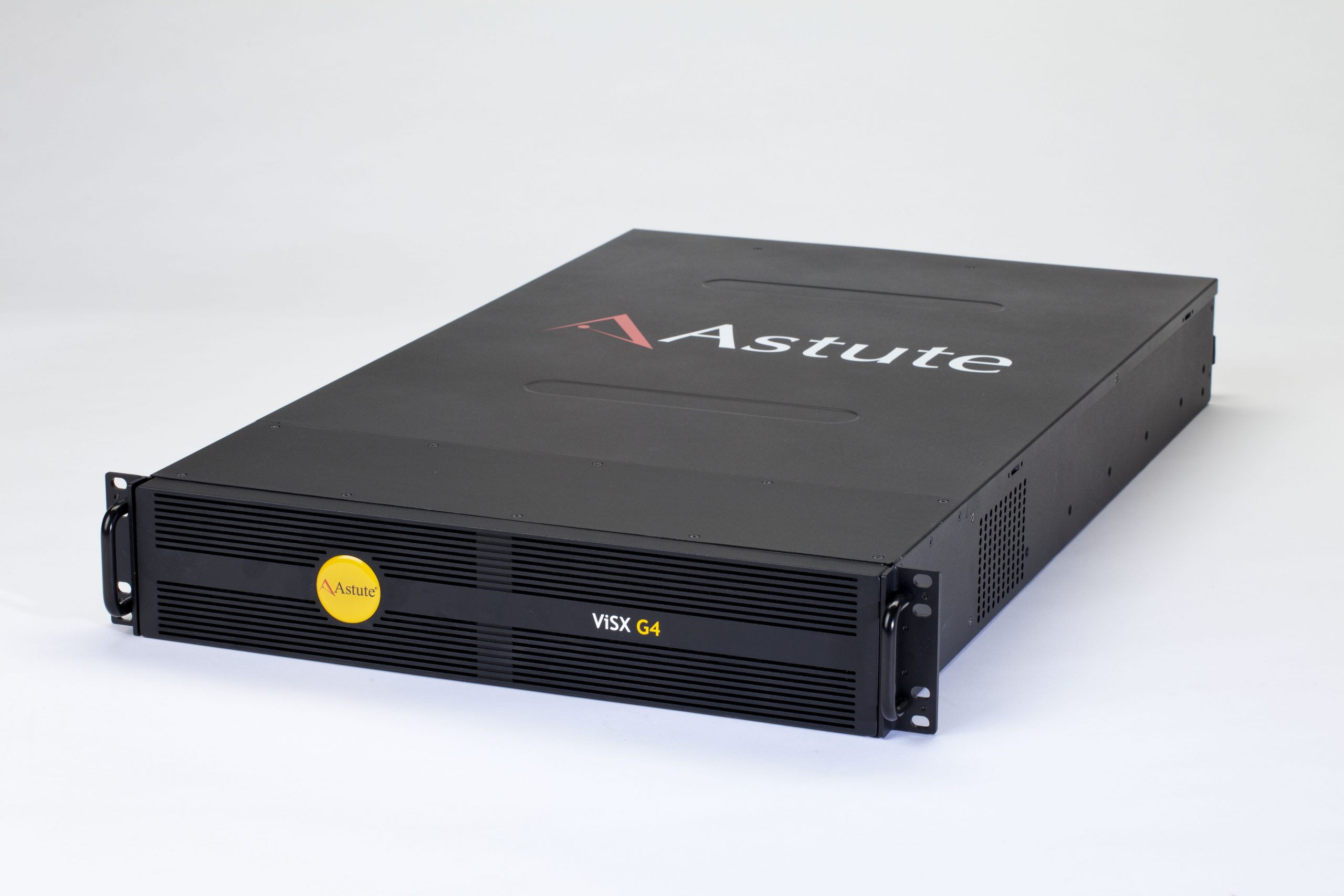
New networked flash storage solution delivers competitive advantage
San Diego-based Astute Networks is announcing a new software release for its ViSX family of performance storage.
ViSX OS 5.0 adds Network File System (NFS) v2, v3, and v4 to its existing iSCSI support. The ViSX range also now offers an expanded range of capacity options to meet the growing demand for high application performance in both physical and virtual environments, including OpenStack support for cloud deployments.
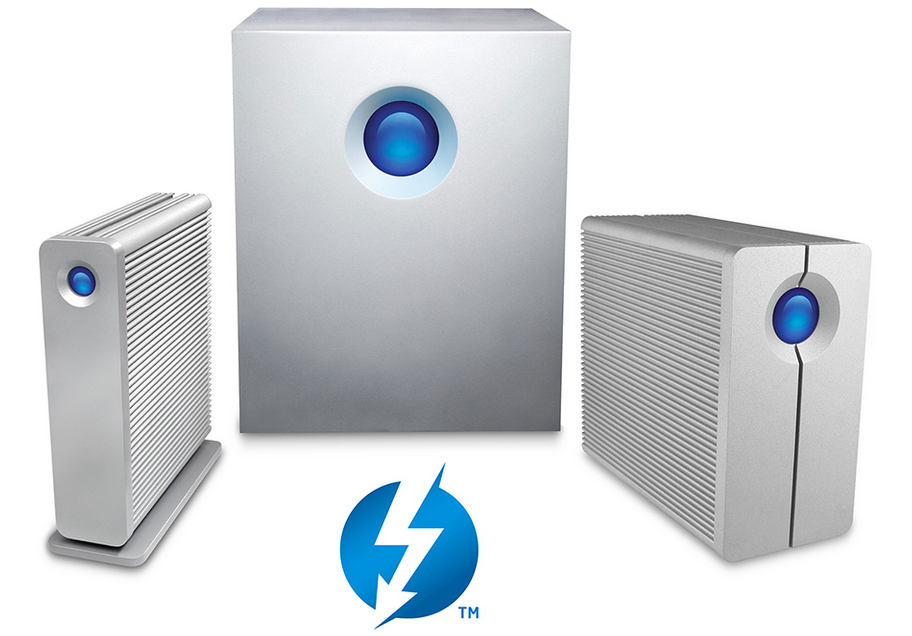
LaCie goes big -- reveals 25 TB NAS
Taking advantage of the availability of 5 TB Seagate HDDs, LaCie has introduced the new drives in three of its NAS devices, that now tout a maximum capacity ranging from 5 TB to 25 TB. The biggest of the bunch has a five-bay layout, which makes it the largest solution in its class that is available on the market today, according to the company.
The smallest of the three is the d2, which can now be had with 5 TB of storage. There are also 3 TB and 4 TB configurations, but those are older. The 2big can offer twice as much at 10 TB. Like its smaller brother, it too can be had with less storage (4 TB, 6 TB and 8 TB), but again those configurations are older. The one that is the most interesting is called 5big, and is the one LaCie calls the largest five-bay solution available now.
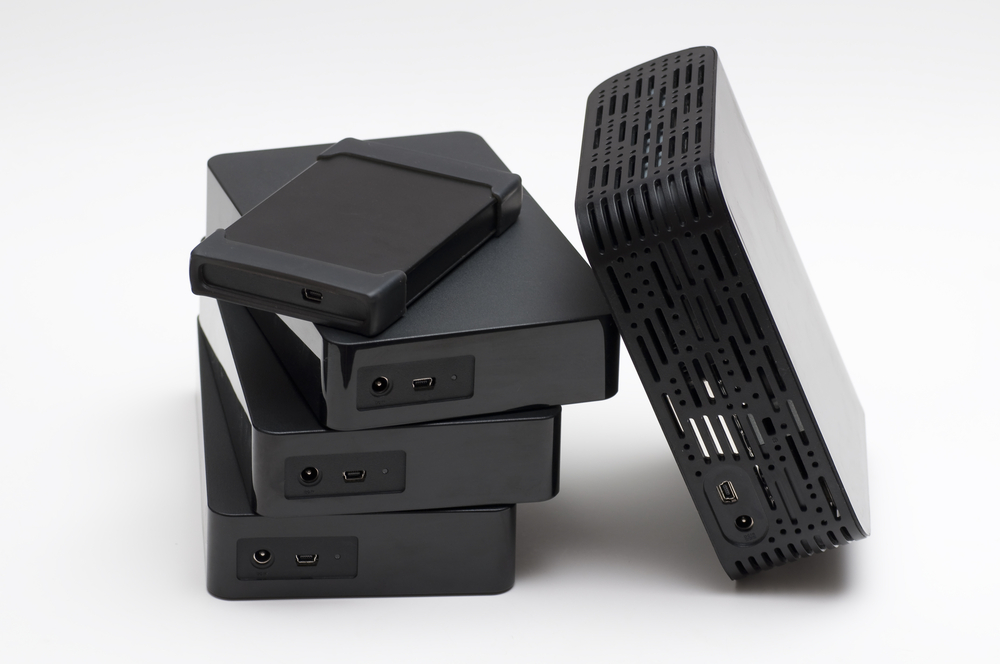
Personal and entry level storage market sees strong end to 2013
According to data from market intelligence specialist IDC worldwide shipments of personal and entry level storage (PELS) grew by 13.6 percent in 2013.
By the end of the year 75.2 million units had been shipped. Shipment values were up too, growing 6.2 percent over the year to reach $6.7 billion.

Free 15GB Bitrix24 account for BetaNews readers
Social intranet cloud site Bitrix24 is two years old and has over 100,000 company sign-ups. To celebrate it is giving BetaNews readers the chance to claim a free account with 15 GB of online document storage -- standard free accounts only get 5GB.
Here is how to claim yours.

Set up your own personal cloud for free with Tonido
There's a lot to like about cloud backup and sync -- security, for one, and the convenience of being able to access your files remotely for another. But cloud storage can be an expensive option, which is where Tonido comes in.
It provides a trio of tools -- Tonido Desktop and Tonido Sync for desktop, Tonido Mobile for mobile -- that lets you turn your home storage into a personal cloud. So long as your backup needs are catered elsewhere, you can access, share, stream and -- to a limited degree -- sync data without paying a single cent.
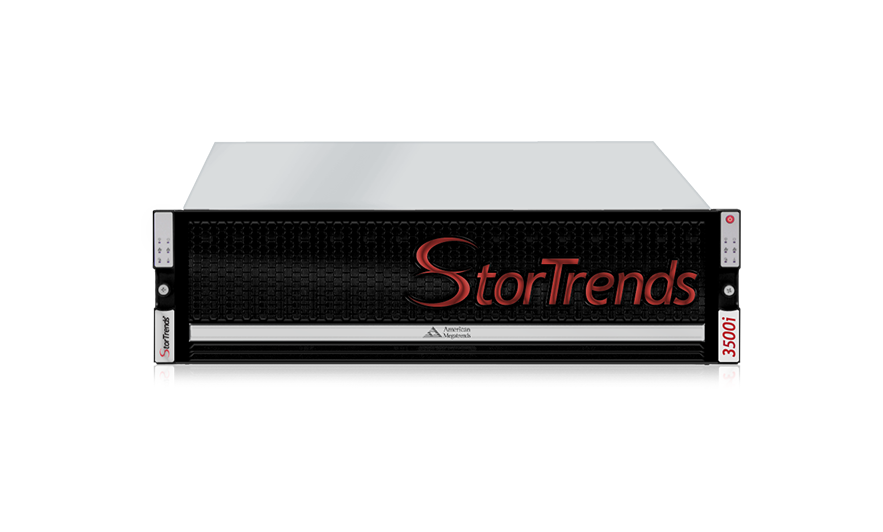
AMI StorTrends 3500i offers high performance storage for smaller enterprises
Most PC users probably know American Megatrends Inc (AMI) for its BIOS, but the company is also a major player in the storage market.
Its latest release, the StorTrends 3500i, is aimed at smaller and medium businesses. It uses a hybrid of SSD and conventional drives to deliver performance with lower capital expenditure than other solutions.
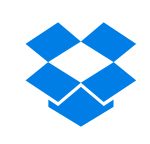
Dropbox makes Pause Sync more accessible, revamps setup wizard
Cloud backup and sync provider Dropbox has released a major new stable build for desktop with the launch of Dropbox 2.6.2 FINAL for Windows, Mac and Linux. Version 2.6’s headline new feature is brand new, redesigned installers for Windows and Mac platforms, but there are some useful functional improvements too.
The redesigned installer aims to make the process as simple as possible, automatically downloading and installing the new version with significantly less user interaction than previously.

My (achievable) tech resolutions for 2014 [Wayne]
As you’ll have noticed by now, the BetaNews writers have been making tech-based resolutions for the New Year. This is something I did last year, and revisiting my post for the first time since I originally wrote it, I discovered what I suspected would be the case -- I failed miserably across the board.
I said I would embrace Google+, but I haven’t. I’ve followed some people, and used Google’s social network slightly more, but embraced it? Nope. I said I’d change my passwords. I changed maybe two. I claimed I’d sort out my inbox. It was 79 percent full (8GB) then. It’s 74 percent full (11.19GB) now, so that’s a big fat fail. I said I’d learn to love Windows 8. I never did. I do really like Windows 8.1 though, so I'll claim that as a win. I stated I’d move my data to the cloud, and learn to program. I think you can guess how well those panned out. While a lot of my files are stored in the cloud, I still have multiple local copies of everything, and I haven’t programmed so much as a single line of code. So for this year’s list, I’m going to choose resolutions I believe I can actually achieve.
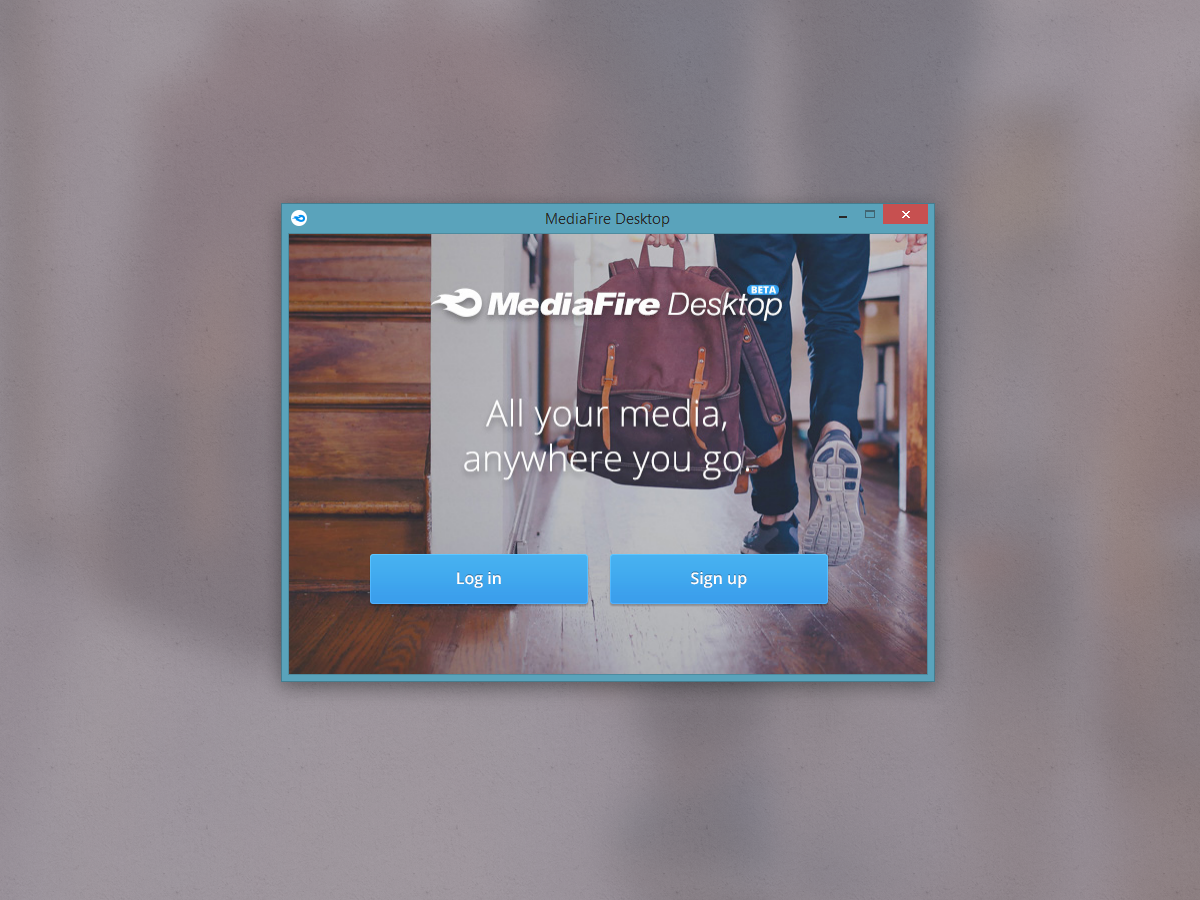
MediaFire Pro giveaway -- 1500 GB of cloud storage for BetaNews readers [Closed]
Cloud storage locker MediaFire has announced the availability of its desktop sync clients for Windows PCs and Macs. The new apps, currently in beta, arrive alongside a revamped web interface that is designed to make editing, sharing and viewing files much easier. The service is currently offering both free (10 GB of storage) and paid plans (Pro and Business), which can take advantage of the new round of changes.
The base MediaFire Pro account includes 100 GB of cloud storage, and currently costs $24.99 per year (50 percent off from the usual $49.99). The company has given us 15 MediaFire Pro account redemption codes to give away to BetaNews readers, providing each winner with 100 GB of cloud storage for a year.
